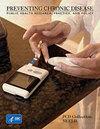Homeownership Matters: Impact of Homeownership on the Prevalence of Chronic Health Conditions in the United States.
IF 4.4
3区 医学
Q1 PUBLIC, ENVIRONMENTAL & OCCUPATIONAL HEALTH
引用次数: 0
Abstract
Introduction Homeownership is crucial for stability and healthy life. We examined the role of homeownership in predicting the prevalence of common chronic health conditions in the United States. Methods We used 2020 Behavioral Risk Factor Surveillance System data (N = 401,958) to assess the association between homeownership and self-reported diagnosed diabetes, asthma, cancer, coronary heart disease (CHD), stroke, and kidney disease. We analyzed data by using logistic regression, adjusting for age, sex, race and ethnicity, education, employment, and income and computed odds ratios (ORs) and corresponding 95% CIs. Results Most survey participants (66.8%) owned their residences. Age, marital status, education, and income significantly influenced homeownership. Odds of homeownership progressively increased with age, reaching a peak at 17.45 (95% CI, 16.21-18.79) for adults aged 65 years or older, and non-Hispanic White adults had the highest odds (OR = 3.34; 95% CI, 3.18-3.52). Compared with renters, homeowners generally had lower prevalence of chronic health conditions, especially among those aged 45 to 64 years. After adjusting for age, sex, and race and ethnicity, the odds of having chronic health conditions among renters were higher than those of homeowners: CHD, 1.39 (1.27-1.52); diabetes, 1.27 (1.20-1.35); asthma, 1.29 (1.23-1.36); stroke, 1.89 (1.71-2.09); and kidney disease, 1.59 (1.44-1.77). Conclusion Homeownership can be used to predict the prevalence of several chronic health conditions. Considering its significant influence, public health initiatives should focus on housing-related interventions to improve population health.房屋所有权很重要:房屋所有权对美国慢性病患病率的影响》(Homeownership Matters: Impact of Homeownership on the Prevalence of Chronic Health Conditions in the United States)。
导言:拥有住房对稳定和健康的生活至关重要。我们利用 2020 年行为风险因素监测系统数据(N = 401,958 人)评估了房屋所有权与自我报告的糖尿病、哮喘、癌症、冠心病(CHD)、中风和肾病之间的关系。我们使用逻辑回归法分析数据,并对年龄、性别、种族和民族、教育、就业和收入进行了调整,计算出了几率比(OR)和相应的 95% CI。年龄、婚姻状况、教育程度和收入对房屋所有权有显著影响。随着年龄的增长,拥有住房的几率逐渐增加,65 岁或以上的成年人拥有住房的几率最高,为 17.45(95% CI,16.21-18.79),非西班牙裔白人拥有住房的几率最高(OR = 3.34;95% CI,3.18-3.52)。与租房者相比,房主的慢性病患病率普遍较低,尤其是在 45 至 64 岁的人群中。在对年龄、性别、种族和民族进行调整后,租房者患有慢性病的几率高于房主:结论:房主身份可用于预测多种慢性疾病的患病率。考虑到其重大影响,公共卫生措施应侧重于与住房相关的干预措施,以改善人口健康。
本文章由计算机程序翻译,如有差异,请以英文原文为准。
求助全文
约1分钟内获得全文
求助全文
来源期刊

Preventing Chronic Disease
PUBLIC, ENVIRONMENTAL & OCCUPATIONAL HEALTH-
CiteScore
6.70
自引率
3.60%
发文量
74
期刊介绍:
Preventing Chronic Disease (PCD) is a peer-reviewed electronic journal established by the National Center for Chronic Disease Prevention and Health Promotion. The mission of PCD is to promote the open exchange of information and knowledge among researchers, practitioners, policy makers, and others who strive to improve the health of the public through chronic disease prevention. The vision of PCD is to be the premier forum where practitioners and policy makers inform research and researchers help practitioners and policy makers more effectively improve the health of the population. Articles focus on preventing and controlling chronic diseases and conditions, promoting health, and examining the biological, behavioral, physical, and social determinants of health and their impact on quality of life, morbidity, and mortality across the life span.
文献相关原料
| 公司名称 | 产品信息 | 采购帮参考价格 |
|---|
 求助内容:
求助内容: 应助结果提醒方式:
应助结果提醒方式:


